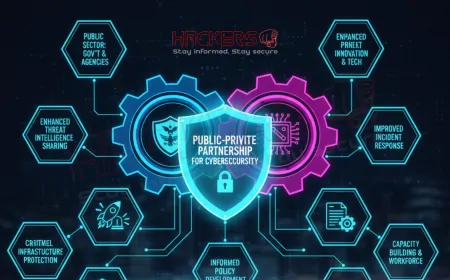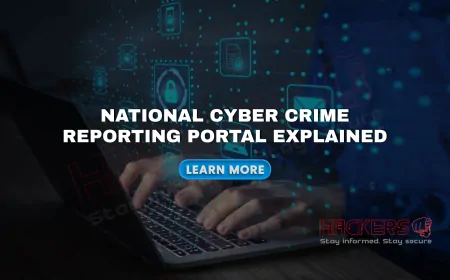How Can You Build a 1-Person Cybersecurity Company That Works Globally?
Picture yourself as a lone cybersecurity warrior, working from a laptop in your home office, protecting businesses across continents from digital threats. It sounds daunting, but in 2025, it’s more achievable than ever. With the global rise in cyberattacks, from ransomware locking small businesses to phishing scams targeting corporations, the demand for cybersecurity expertise is skyrocketing. As a solo entrepreneur, you can tap into this need, offering specialized services to clients worldwide, all without a big team or fancy office. Whether you’re a tech enthusiast or a seasoned IT professional, starting a one-person cybersecurity company that operates globally is within reach. In October 2025, tools like cloud platforms, automation, and remote collaboration make it possible to deliver high-impact services single-handedly. But how do you turn this vision into reality? This blog post will guide you through the steps to build a lean, effective cybersecurity business that serves clients from New York to New Delhi. We’ll cover everything from choosing a niche to scaling globally, using simple language so even beginners can follow. By the end, you’ll have a roadmap to launch a thriving solo venture, safeguarding the digital world one client at a time.

Table of Contents
- Why Start a 1-Person Cybersecurity Company?
- Choosing Your Cybersecurity Niche
- Essential Skills and Tools
- Setting Up Your Business
- Building a Global Client Base
- Leveraging Technology for Efficiency
- Marketing and Branding Your Services
- Challenges and How to Overcome Them
- Conclusion
- Frequently Asked Questions
Why Start a 1-Person Cybersecurity Company?
The cybersecurity industry is booming. In 2024, global cybercrime costs reached $9.2 trillion, and businesses of all sizes need protection.
Solo ventures thrive in niche markets. Small businesses, startups, and even larger firms often prefer personalized services over big agencies. You can offer tailored solutions, like securing a small retailer’s payment system or auditing a tech startup’s cloud setup.
Technology makes it possible. Cloud-based tools, automation, and freelance platforms let one person handle complex tasks efficiently. Plus, the global nature of cyber threats means clients in different countries face similar issues, creating a universal demand for your skills.
Starting small also allows you to scale later, perhaps hiring freelancers or automating more tasks. It’s a low-risk way to enter a high-demand field, making it ideal for driven individuals.
Choosing Your Cybersecurity Niche
Cybersecurity is vast, so focusing on a niche is key to standing out. A niche is a specific area where you offer expertise, making you the go-to expert for that service. Popular niches include:
- Penetration testing: Simulating attacks to find vulnerabilities.
- Compliance consulting: Helping businesses meet regulations like GDPR or HIPAA.
- Incident response: Handling breaches or ransomware attacks.
- Cloud security: Protecting data on platforms like AWS or Azure.
- Training: Educating businesses on phishing or secure practices.
Choose based on your skills and market demand. For example, small businesses often need affordable penetration testing.
A niche lets you specialize, charge premium rates, and build a reputation. It’s like being a chef who masters one cuisine rather than cooking everything.
Essential Skills and Tools
Running a solo cybersecurity company requires a mix of technical and business skills. Technical skills include understanding networks, encryption, and threat detection. You don’t need to be an expert in everything, but a solid foundation is crucial.
Key skills include:
- Threat analysis: Identifying risks in systems.
- Ethical hacking: Testing systems for weaknesses.
- Data protection: Using tools like encryption to secure information.
- Communication: Explaining risks to non-technical clients.
Tools are your allies. Open-source options like Kali Linux for testing or Wireshark for network analysis are free and powerful.
Business skills matter too: basic accounting, project management, and client communication. Free courses on Coursera or Udemy can fill gaps. Stay updated with certifications like CISSP or CompTIA Security+, which boost credibility.
Setting Up Your Business
Starting your company involves legal and practical steps. Register as a sole proprietor or LLC, depending on your country’s laws. In India, for example, register with the Ministry of Corporate Affairs.
Create a professional website using tools like Wix or WordPress, showcasing your services and expertise. Set up a business email (e.g., [email protected]) for credibility.
Invest in basic tools: a secure laptop, VPN for safe connections, and cloud storage for client data. Use accounting software like QuickBooks for invoicing. Obtain cyber insurance to protect against liability.
Here’s a table of setup essentials:
| Component | Purpose | Example |
|---|---|---|
| Legal Registration | Formalize business | LLC or sole proprietor |
| Website | Showcase services | WordPress site |
| Tools | Perform services | Kali Linux, VPN |
| Insurance | Protect against liability | Cyber insurance |
| Accounting | Manage finances | QuickBooks |
Building a Global Client Base
Going global means reaching clients beyond your local area. Start with freelance platforms like Upwork or Fiverr, where businesses worldwide seek cybersecurity services.
Network on LinkedIn and X, joining cybersecurity groups and sharing insights. Attend virtual conferences, like DEF CON, to connect with potential clients. Target small businesses or startups in regions with growing digital needs, like Southeast Asia or Africa.
Use English for global reach, but consider translation tools for local markets. Offer remote services, like virtual audits or consultations via Zoom, to eliminate geographic barriers. Build trust with testimonials and case studies on your website.
Partner with global resellers or MSPs (Managed Service Providers) to expand reach without hiring staff.
Leveraging Technology for Efficiency
Technology lets one person do the work of many. Automation tools like Nessus streamline vulnerability scans.
Cloud platforms like AWS or Google Cloud offer scalable security solutions you can resell or use for clients. Use project management tools like Trello to track tasks. Secure communication apps, like Signal, protect client interactions.
Outsource non-core tasks, like bookkeeping, to freelancers on platforms like Freelancer.com. This lets you focus on high-value cybersecurity work while keeping operations lean.
Marketing and Branding Your Services
Marketing builds your reputation. Create a professional brand: a logo, consistent colors, and a tagline like “Global Security, One Client at a Time.” Share content on X or LinkedIn, like tips on avoiding phishing scams, to show expertise.
Write blog posts or create videos explaining cybersecurity in simple terms. Offer free webinars to attract leads. Use SEO (Search Engine Optimization) to make your website rank higher on Google for terms like “cybersecurity consultant.”
Email marketing through tools like Mailchimp keeps clients engaged. Ask satisfied clients for reviews to build credibility. Focus on trust: clients want a reliable expert in a field full of risks.
Challenges and How to Overcome Them
Running a solo company has hurdles. Time management is tough: prioritize tasks using tools like Asana. Burnout is a risk: set boundaries, like fixed work hours.
Staying updated on threats is critical but time-consuming. Follow cybersecurity news on X or subscribe to feeds like Krebs on Security.
Global regulations, like GDPR, require compliance knowledge. Use online resources or hire a consultant for complex cases. Building trust as a solo operator takes time: deliver consistent results to overcome skepticism.
Conclusion
Building a one-person cybersecurity company that works globally is challenging but achievable in 2025. By choosing a niche, mastering essential skills, and leveraging technology, you can serve clients worldwide with minimal overhead. A professional setup, smart marketing, and global networking open doors to diverse markets. Despite challenges like time management and staying updated, tools and automation keep you efficient. With demand for cybersecurity soaring, a solo venture offers flexibility and impact, protecting businesses from digital threats while building a rewarding career.
Frequently Asked Questions
What is a one-person cybersecurity company?
A solo business offering cybersecurity services globally.
Why start one?
High demand, low overhead, global reach.
What niches are best?
Penetration testing, compliance, cloud security.
Do I need certifications?
Yes, like CISSP, for credibility.
What tools are essential?
Kali Linux, Nessus, cloud platforms.
How find global clients?
Use Upwork, LinkedIn, conferences.
Can I work remotely?
Yes, with virtual audits, consultations.
What is penetration testing?
Simulating attacks to find weaknesses.
How manage time?
Use tools like Trello, set hours.
What about regulations?
Learn GDPR, HIPAA basics.
How market services?
Blog, webinars, SEO.
Can AI help?
Yes, for threat detection.
What are startup costs?
Laptop, software, website, insurance.
How stay updated?
Follow X, cybersecurity news.
Is cyber insurance needed?
Yes, for liability protection.
Can I outsource tasks?
Yes, bookkeeping, marketing.
What is phishing?
Fake messages stealing data.
How build trust?
Deliver results, share testimonials.
Are small businesses clients?
Yes, they need affordable security.
How scale globally?
Partner with MSPs, use cloud tools.
What's Your Reaction?









































































